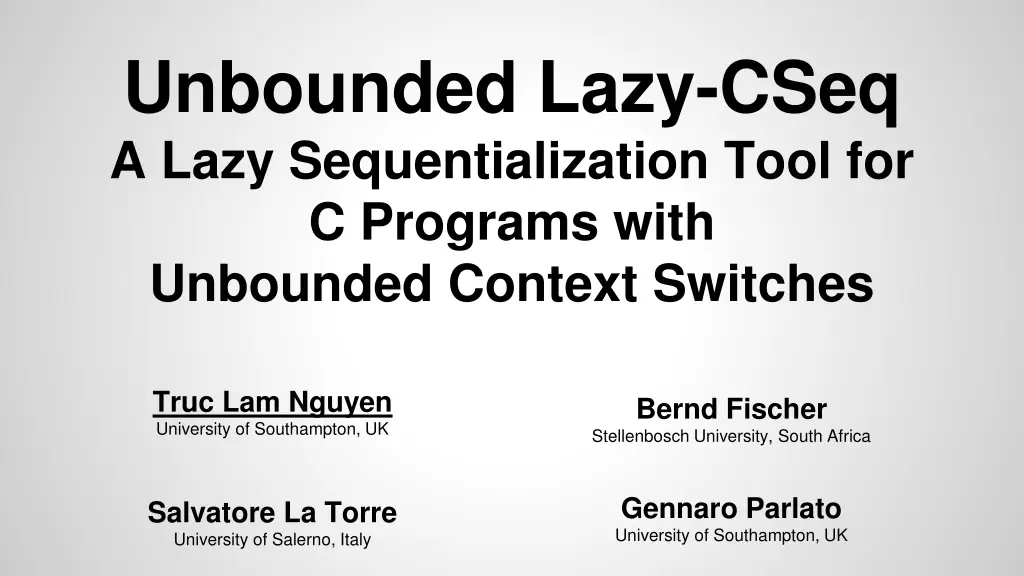
Lazy Sequentialization Tool for Unbounded C Programs
Explore the Unbounded Lazy-CSeq tool for sequentializing C programs with unbounded context switches, reducing concurrent program analysis to sequential analysis, supporting dynamic thread creation and loop preservation while providing correctness proofs.
Download Presentation

Please find below an Image/Link to download the presentation.
The content on the website is provided AS IS for your information and personal use only. It may not be sold, licensed, or shared on other websites without obtaining consent from the author. If you encounter any issues during the download, it is possible that the publisher has removed the file from their server.
You are allowed to download the files provided on this website for personal or commercial use, subject to the condition that they are used lawfully. All files are the property of their respective owners.
The content on the website is provided AS IS for your information and personal use only. It may not be sold, licensed, or shared on other websites without obtaining consent from the author.
E N D
Presentation Transcript
Unbounded Lazy-CSeq A Lazy Sequentialization Tool for C Programs with Unbounded Context Switches Truc Lam Nguyen University of Southampton, UK Bernd Fischer Stellenbosch University, South Africa Gennaro Parlato University of Southampton, UK Salvatore La Torre University of Salerno, Italy
problem: analysis of concurrent program approach: reduction to sequential analysis inlining, loop preserving ,... Predicate Abstraction Tool Unbounded Lazy-Cseq P P Unbounded context switches CPAChecker concurrent C program sequential C program P equivalent to P
Overview Threads thread function t1(){...} GUARD S1; GUARD S2; thread function tn(){...} Simulation function while (true) { t1(); tn(); } GUARD Sm; T1 Tn Main driver
Features Support dynamic thread creation with o bounded number of threads o explicit context switch points in thread Support unbounded number of context switches Preserve (in)finite loops Can provide actual correctness proof
Thank you! users.ecs.soton.ac.uk/gp4/cseq
